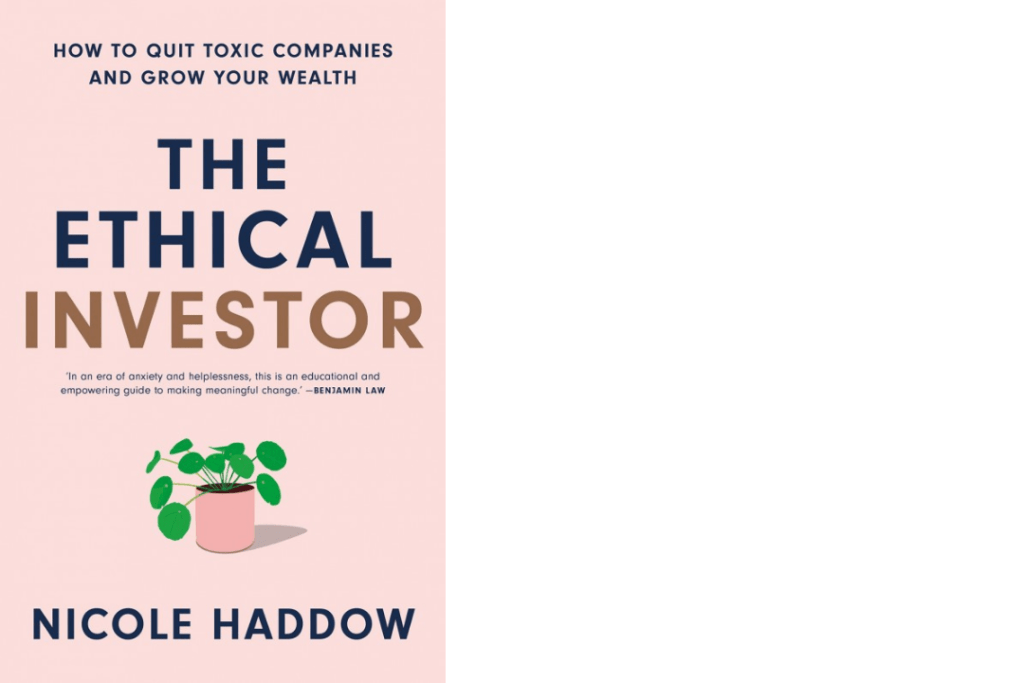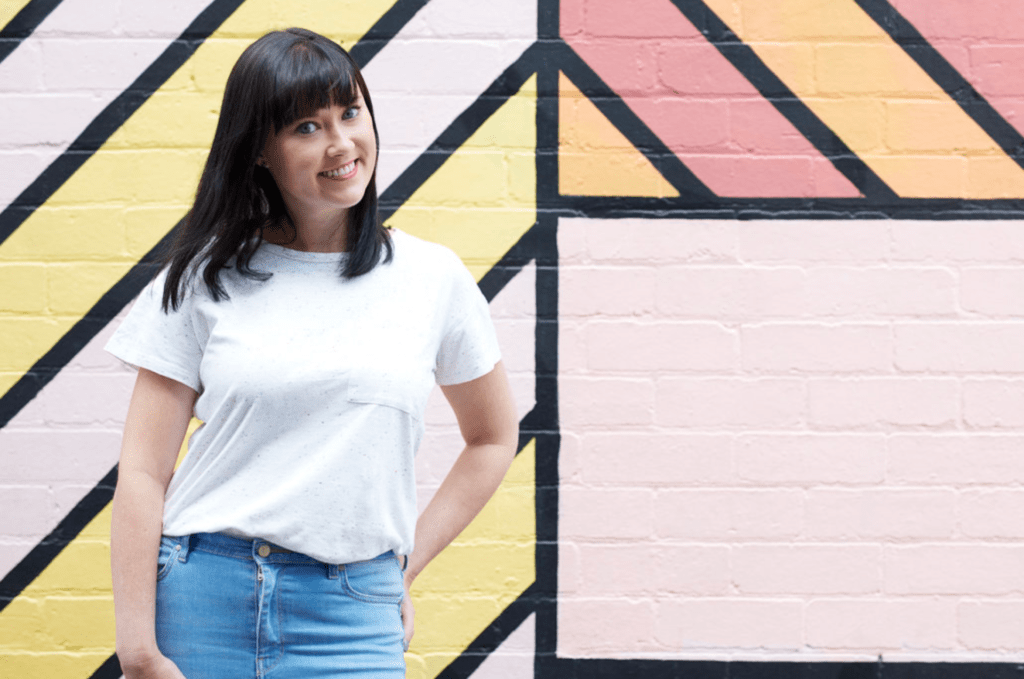Once an investment novice, journalist Nicole Haddow was determined to find out whether it’s possible to grow your wealth, while doing your bit for the planet and its population. Investigating the issue, she wrote The Ethical Investor, offering a practical guide for those wanting to grow their wealth while making a difference.
Below, we’ve published an extract from her book exploring micro-investing and Exchange Traded Funds (ETFs), with the permission of the book’s publisher.
The ‘Australian Dream’ is supposedly to own a house with a barbecue in your backyard. I had been obsessed with this. But it’s just so hard to achieve these days. That doesn’t mean the dream is over, it’s just changing. I still believe property is a valuable consideration. You need somewhere to live, particularly in your later years, but there are lots of other ways to build wealth, especially if you’re starting with limited funds.
Before I can decide which shares I’d like to put my money into, I have to be clear on my value set. I call financial adviser Alex Jamieson. He describes the ethical space as a ‘spectrum’, where it’s possible to be ‘deep green’ at one end and a little more grey at the other. He points out that shares that aren’t really green aren’t necessarily terrible. They’re what he calls ‘neutral’, meaning they are neither really progressive nor really bad. An example might be Telstra, which is not particularly green or innovative, but is not tearing down rainforests.
Next, he tells me to consider the ‘triangle of performance, fees and ethical screen’. Obviously, I want anything I invest in to perform. Fees are also part of the consideration, but as we established earlier, sometimes fees play a part in time spent deep-diving into the quality of the investment. Alex tells me that exchange traded funds (ETF) are a good place to start.
An ETF is a fund that owns assets, which are then divided into shares that you can purchase through the ASX (Australian Securities Exchange), via your brokerage account. The number of units you hold represents your share in the fund. We’ll go into more detail about ETFs shortly, but essentially, the reason they’re good for a beginner investor is because there’s a low barrier to entry and they give you a lot of exposure to different companies.
If you search ‘Australian ethical ETFs’ online, you’ll find heaps of information covering what’s available and how they perform. The advantage of choosing ETFs is that it’s easy to find specific information about their holdings. A lot of micro-investment platforms have ETF portfolios, and they allow you to buy a tiny share of one using the smallest amount of money.

Let’s look at how it works.
What is micro-investing?
Micro-investing enables you to put small amounts of money into an investment portfolio. This is great for people starting out with limited funds, because some traditional share trading platforms require
a minimum investment of, say, $500 or $1000 just to get started. But we’re talking about investing with tiny sums. Like, you can start with a dollar, or 50 cents. Money that, theoretically, you won’t miss. Think spare change that you’d throw into a busker’s hat without giving it a second thought.
So with micro-investing you don’t have to wait to save up a chunk of cash. Some platforms enable you to ‘round up’ cents left over in a transaction. For example, you might buy a coffee for $4.50. If you have your transaction account linked to a micro-investing platform, you can set it to round up each purchase to the nearest dollar, so 50 cents goes into your portfolio. The idea is that it’s such a small amount, you don’t miss it, and the total will grow slowly over time.
It’s the perfect way for me to start exploring shares. I’m treating it as my learner driver’s licence. It allows me to get into the habit of investing and to build confidence over time, before I hit the investment freeway.
Micro-investing is increasing in popularity, not least because there are some great apps out there that allow you to get started in a matter of minutes. A quick online search reveals a range of options, including Raiz Invest, Spaceship Voyager and Stake. I choose Raiz Invest because, after a bit of reading, I find that they have a dedicated ethical investment portfolio. Plus, there’s a handy tool that allows me to round up every purchase that I make and add to my little pot of cash. But before I go any further, there’s some basic investment jargon that I need to understand.
Risk assessment
There’s always going to be a level of risk when you’re investing. The stock market consistently rises and falls. Your risk tolerance will depend on a few factors, including your age, the amount of money you have and the length of time you’re prepared to invest it for. According to ASIC, much of the risk will depend on the period of time you are invested in the market.
Here’s a quick breakdown of what someone in each investment category should be looking for:
Short-term investor (one to three years)
• Risk: very low risk of losing your money
• Volatility: very low, unlikely the value of your savings will fall
• Expected return: 2 to 3 per cent per year (long-term average return)
Medium-term investor (four to six years)
• Risk: medium possibility of losing some of your money
• Volatility: medium; capital value could go up or down 20 per cent in a year
• Expected return: 4 to 5 per cent per year (on average over ten years)
Long-term investor (seven or more years)
• Risk: high, with negative returns expected four to five years out of twenty
• Volatility: high, capital value could go up or down by 40 per cent in a year
• Expected return: 5 to 6 per cent per year (on average over 10+ years)
Looking at these options, I consider myself a long-term investor, which means I’ll hopefully be in a position to weather even the harshest storm. Share prices rise and fall all the time. This is not something to fear. If you’re holding your shares for years, history shows that you should end up with a return.
The Ethical Investor is published by Blank Inc. Check out more on the book here.


